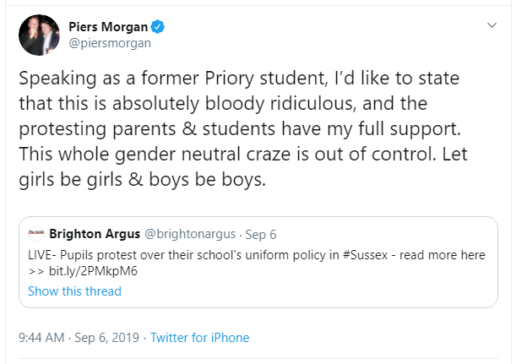Our Cultural Whitewashing
Not too long ago Mr. Potato Head was in trouble. In a day when even a sitting U.S. Supreme Court justice claims not to know how to define a woman, the hubris of calling any toy “Mr.” is just too much for our present culture.
Even Piers Morgan was upset about this tempest-in-a-teapot because the “Mr.” part of Mr. Potato Head was “upsetting a few wokies.”
Giving in to wokeness is one thing. Sensitivity to others is another. LEGO announced some new additions to their lineup of toys. Dailymail.com wrote recently,
“LEGO, which recently unveiled a range of new characters, with a range of skin tones and nationalities, several of whom have disabilities, has revealed…the details of each of these characters. The new generation of Lego friends are a diverse bunch, representing a multitude of backgrounds and lived experiences.”
One can understand being sensitive to others, as in the LEGO example. But often the woke revolution goes too far.
Even children’s literature today is unsafe. Dr. Seuss has been banned by some, and even the late, beloved children’s writer, Roald Dahl, author of Charlie and the Chocolate Factory and James and the Giant Peach, recently came under fire. He almost had hundreds of changes posthumously made to his books.
Thankfully, after the uproar against the attempted bowdlerizing Dahl’s works, Random House decided to continue to make available the books as Roald Dahl wrote them—while still offering the new, edited, sanitized versions.
About 25 years ago, I paid good money to the estate of Roald Dahl to use portions of his classic Charlie and the Chocolate Factory in a book of short stories I compiled.
My book, The Moral of the Story, published by Broadman & Holman (1996, now out of print), included selections from various stories that helped illustrate the nefarious nature of the Seven Deadly Sins. They are Pride, Greed, Envy, Anger, Lust, Gluttony, and Sloth. The Bible condemns each of these sins. But would today’s culture perhaps make each of them a virtue?
Portions of Dahl’s Willy Wonka story were perfect for the section of my book dealing with gluttony. Dahl cleverly exposed the pitfalls of eating “beyond one’s seams,” including one boy named Augustus Gloop, that “nincompoop.” Dahl called him “fat.” The modern censors tried to change that and other offensive details.
In the famous scene I was able to reproduce, some fortunate children win a special visit to Willy Wonka’s magical chocolate factory. While on the tour, Augustus Gloop is unable to resist the temptation to get down on the banks of a magic chocolate river and lap as much of it as he can, like a dog.
Wonka and Gloop’s parents warn Augustus against doing this. “But Augustus was deaf to everything except the call of his enormous stomach,” writes Dahl. And then Augustus Gloop experiences humiliating punishment for his gluttony.
Part of the impulse to “clean up” Dahl’s writings is to make sure that people wouldn’t be offended.
But who knows how many children might have been warned into avoiding a life of excessive overeating and the consequent deleterious effects on health that flow from it? God warns against gluttony and other sins because they are harmful for us.
With our cultural revolution, which can’t tell men from women, if you say that some behavior someone engages in is wrong, you might hurt their feelings. Well, there is a Constitutional freedom of speech. But there’s not a Constitutional right to not be offended. Besides, hurt feelings might actually lead to needed changes.
The Bible is frank about man being sinful. The founders of America acknowledged that reality and created the most durable governing document in history, the U.S. Constitution, because it conforms to the empirical reality that we are sinful.
John Adams, a key founding father, commented on man’s sinful nature by observing that those in power tend to become like “ravenous beasts of prey.” Thus, the founders separated power so that no one group could lord it over the others.
The Scriptures say that we have all have sinned and fallen short of the glory of God. They also explain how God forgives sin for those who repent and call on Jesus who died for sinners and rose again from the dead.
However, in our post-Christian society, there is a major push to make everything woke—even by whitewashing classic children’s literature. Where does it all stop? When can children be children again?
When can sin be viewed as sin again? Isn’t it better to admit wrongdoing than to try to redefine what is wrong in the first place? There are moral standards that come from beyond ourselves. As Cecil B. De Mille once noted, “We cannot break the Ten Commandments. We can only break ourselves against them.” Thus, endeth my Lenten meditation.
This article was originally published at JerryNewcome.com.
